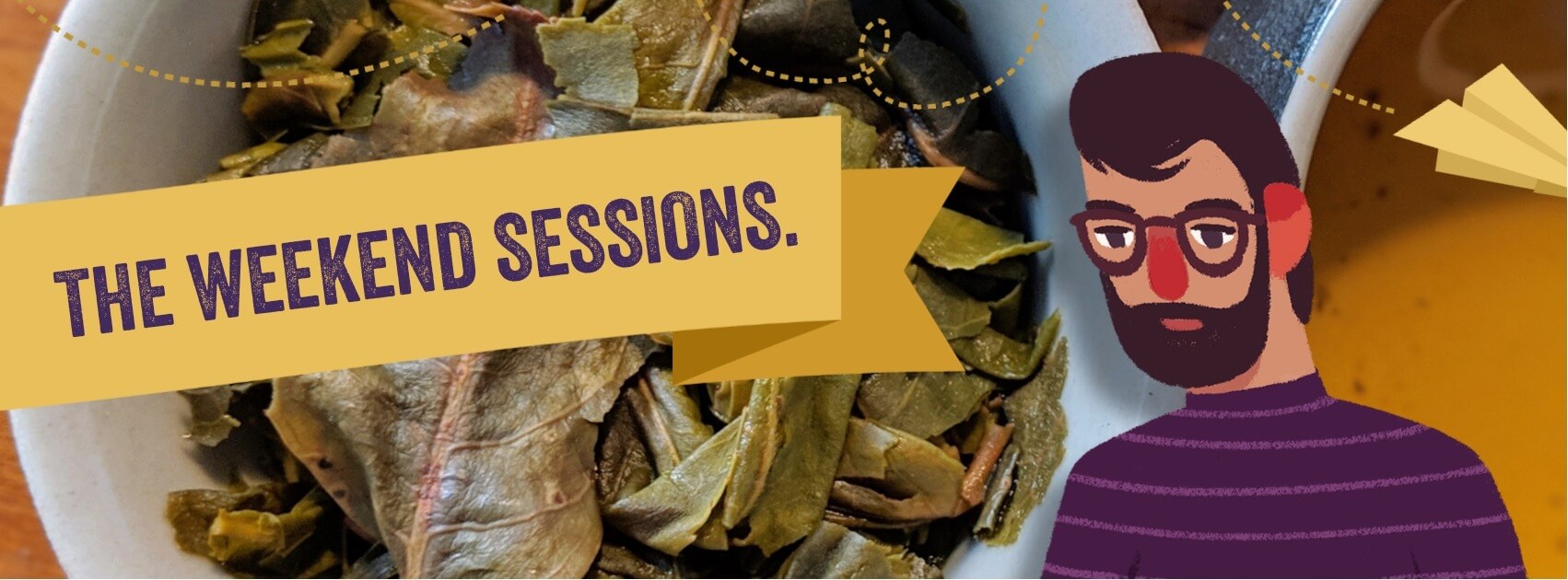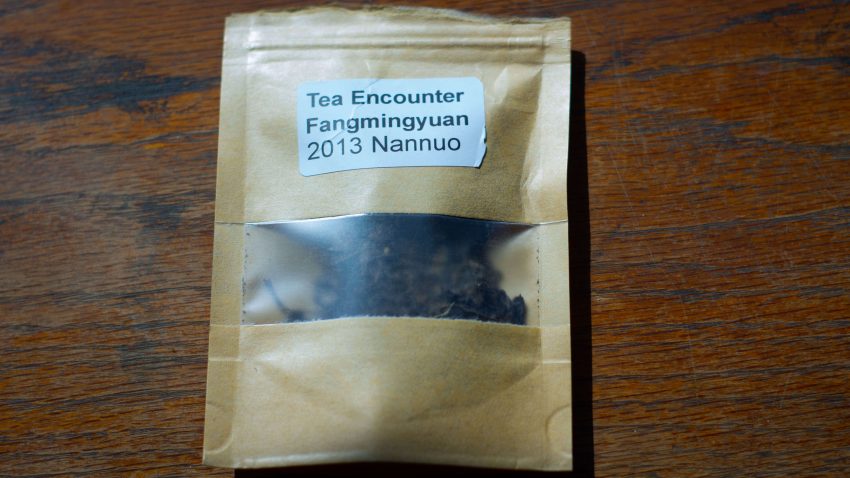Today’s review is one of a puerh that I have been looking forward to for a little bit now: Fangmingyuan’s 2013 Nannuo sheng puerh. Trying out new teas is always fun and this one is a double whammy for me – I have never tried a Fangmingyuan tea before and don’t know anything about them, and I haven’t had a Nannuo area sheng before. Knowing so little about this factory and the area, I’m pretty excited to see what it has in store. Lets get into it!
This tea came to me as a free sample from Tea Encounter.
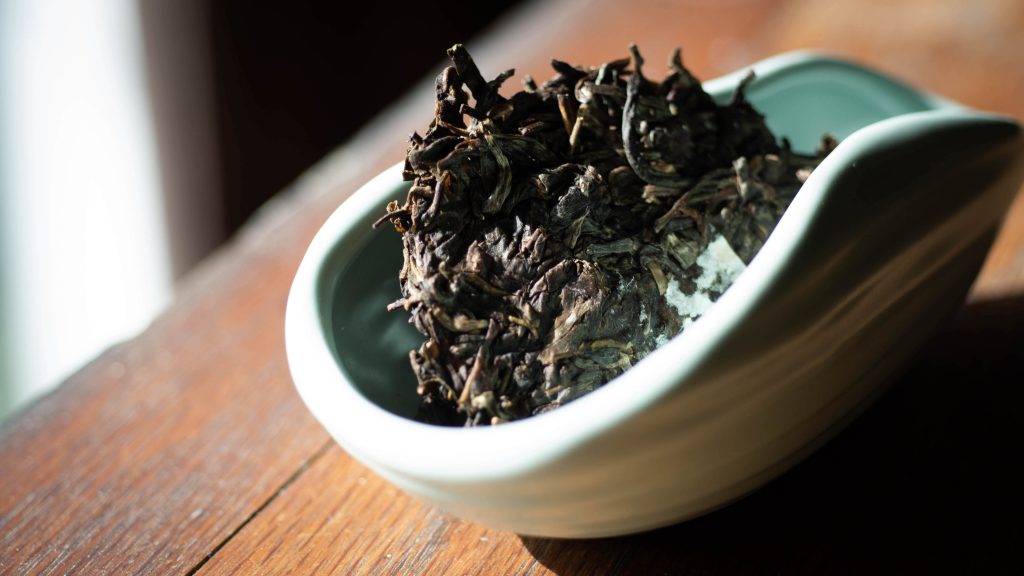
Initial Impressions
Neither the wet or dry leaves have too much of an aroma. There is a light fruitiness to both and it’s leaning more to the plum and raisin side of things with maybe a slight note of apple, but you really have to get right up in there to smell anything.
For this session I am using 3.75 grams of tea in my 55ml gaiwan, 90C water and infusions times starting at five seconds and increasing by five each time, after one rinse.
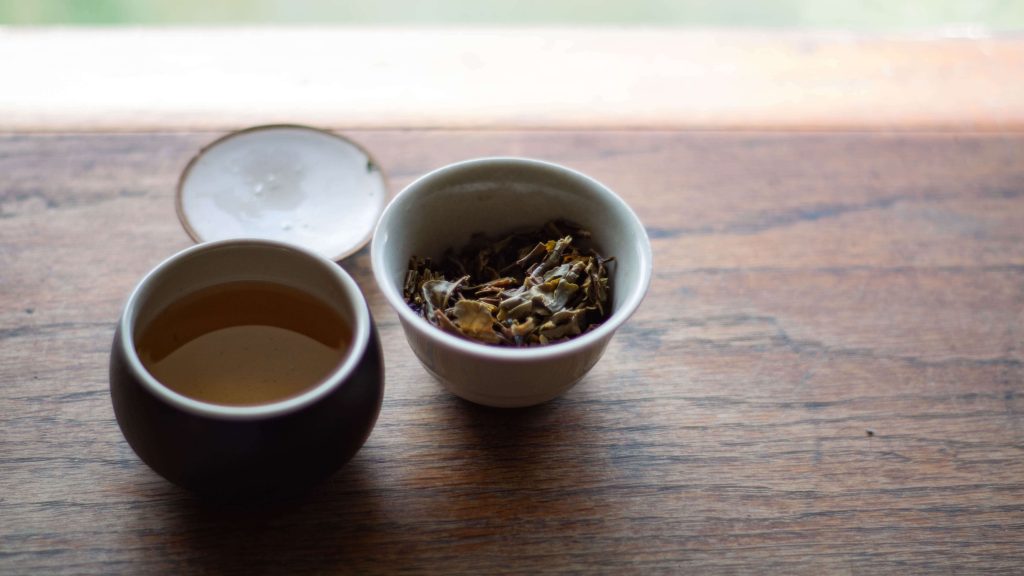
Infusions 1-3
The first two infusions are lighter in taste, but not uninteresting. Right when you take your first sip there is an earthy and woody taste that quickly transforms to a brighter and more citrus like flavour. The aftertaste is fairly astringent and immediately bitter, which slowly changes to a white sugar sort of sweetness. The mouthfeel is wonderfully creamy in texture but neither overly thick or thin. The third infusion looses lots of the woody taste and is all bright lemon and orange notes.
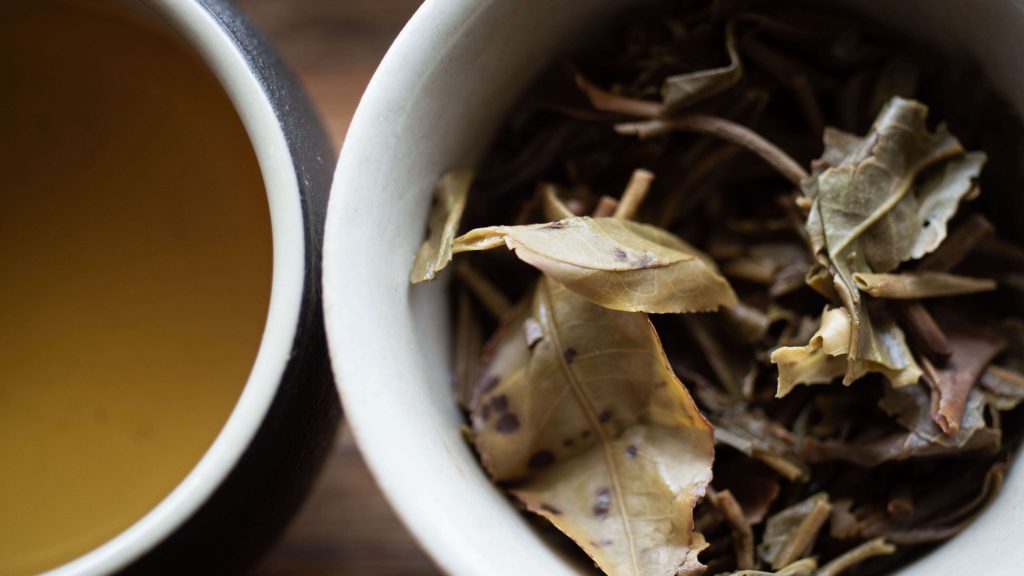
Infusions 4-6
Infusion four is a bit of an odd one, in that every sip is different. This tea can’t seem to make up it’s mind between deep and earthy or bright and citrus-y. Either way, the taste is always enjoyable so this isn’t a bad thing. Infusions five and six have leveled out and are more in line with the third steeping – pure orange and lemon flavours. Through this middle section the astringency is getting pretty intense, and the bitterness that comes in at the start of the aftertaste gets stronger and longer lasting. It still always ends up sweet, but if you’re adverse to bitter and astringent teas then this probably isn’t going to be for you.
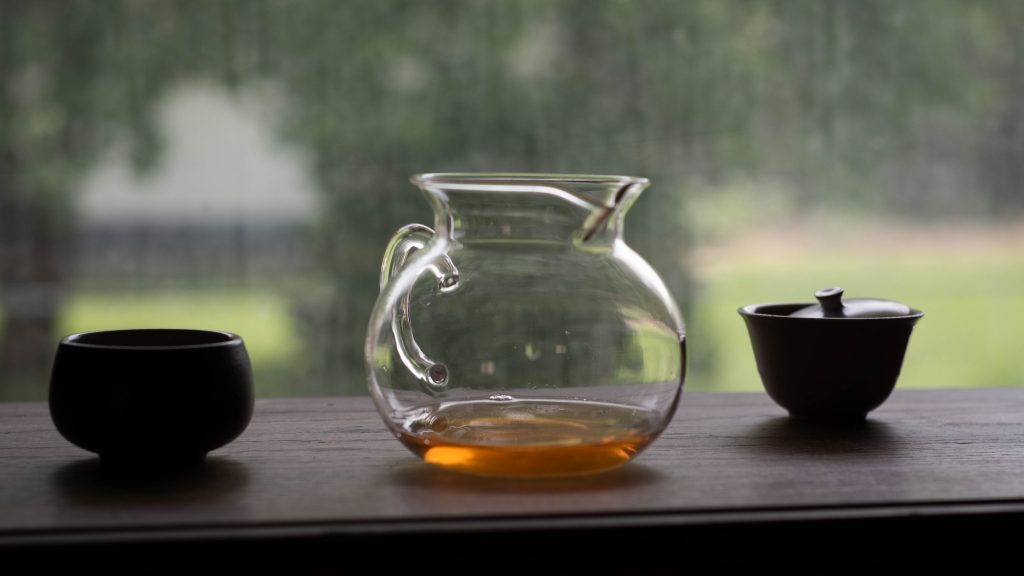
Infusions 7-11
From the seventh infusion on, this tea took a complete turn and it’s like I’m not even drinking the same tea. All notes of citrus are gone, and also there is absolutely no bitterness or astringency. Honestly, I could be tricked into believing that somebody switched out my gaiwan when I wasn’t looking. For the remainder of the session, Fangmingyuan’s 2013 Nannuo is super sweet, with notes of plum, raisin and a touch of apple. With these changes came a drop in overall potency, and the tea started to wind down from the seventh infusion on. It is a pretty gradual fade out that ended at the eleventh infusion.
Final Thoughts
After finishing off my session I double checked the product page over on Tea Encounter and was surprised to see that this tea comes in at $0.21 per gram. I think overall this is a really nice tea and a good performer, but when taking the price into consideration it’s a definite winner for me and is something that I will likely pick up a cake of.
